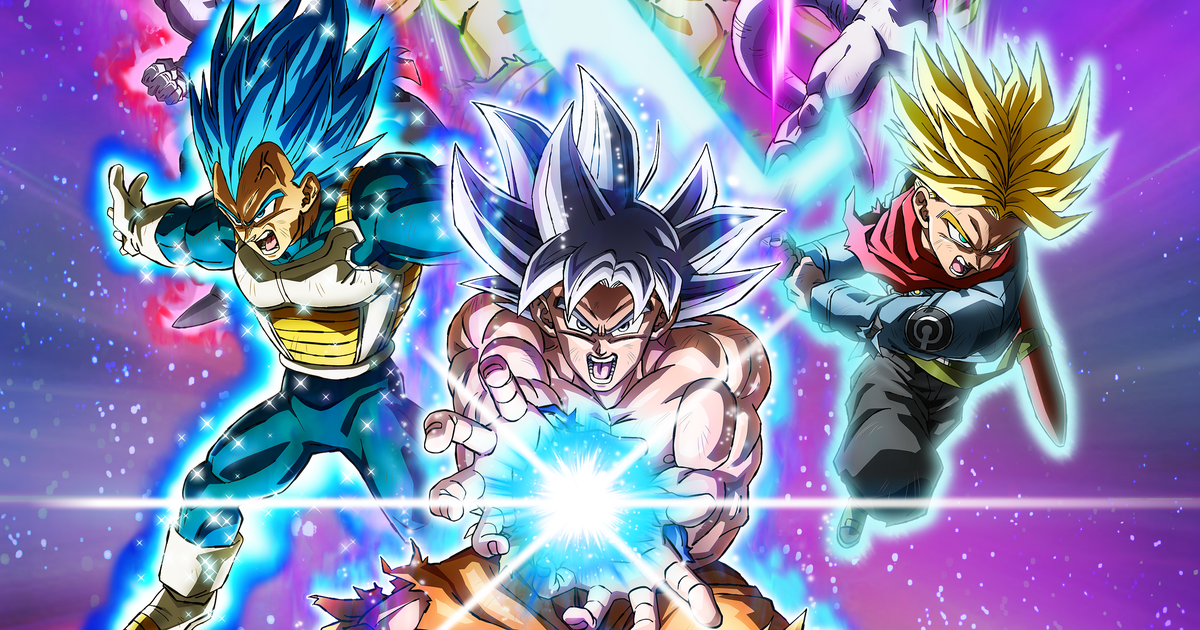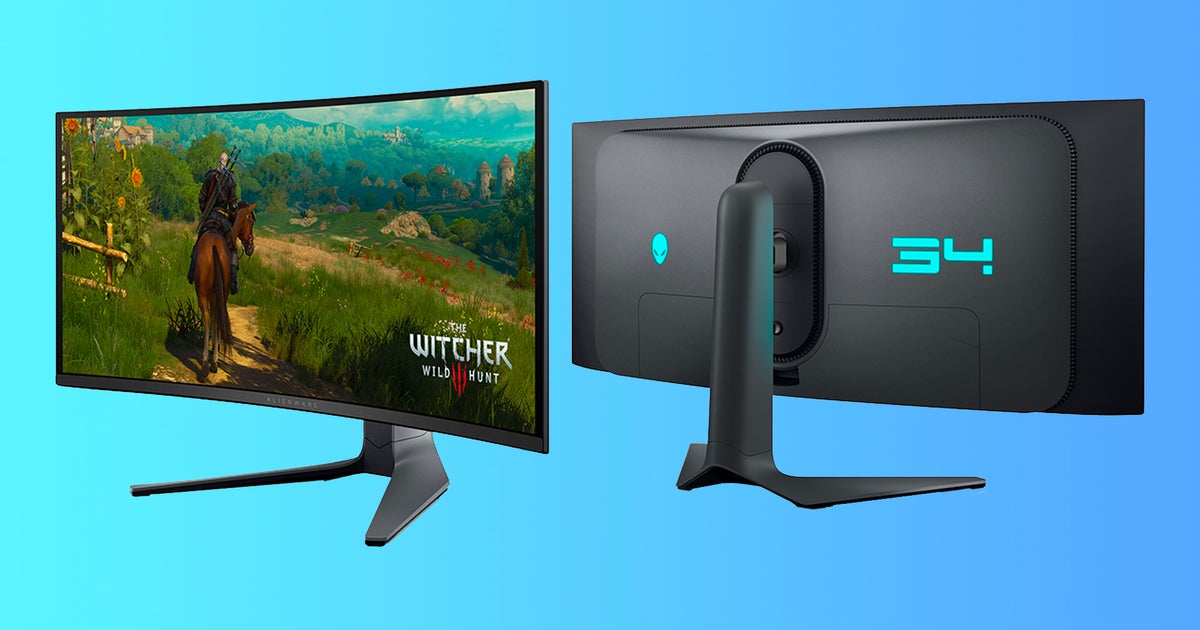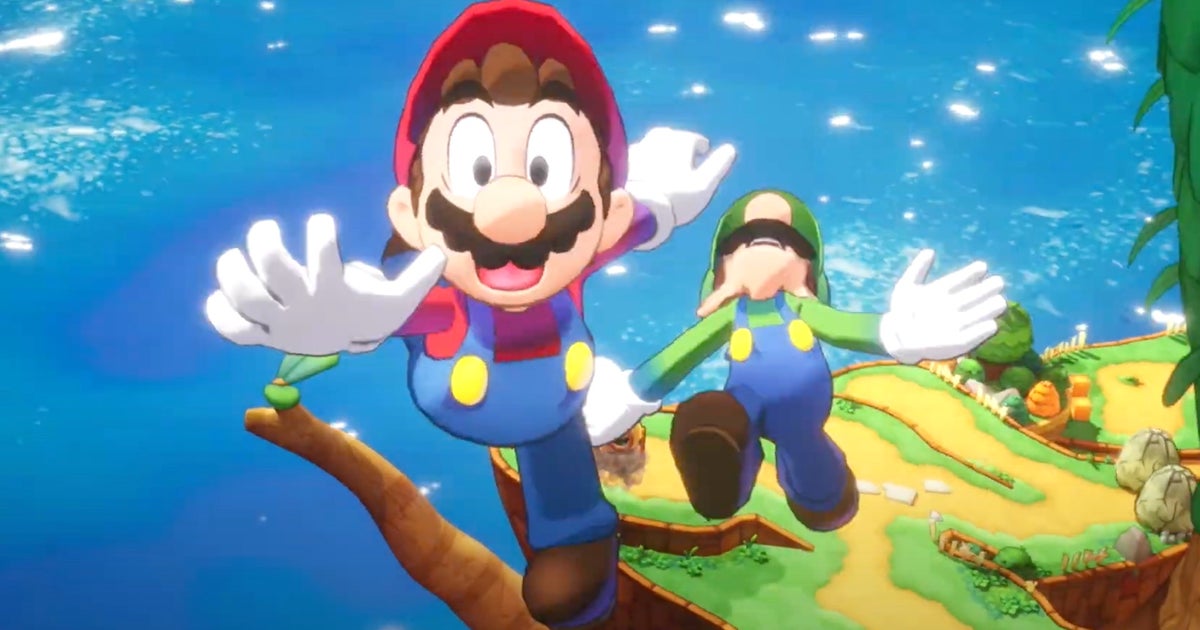Sparking! Zero is everything Dragon Ball fans will have wanted, but it’s also just a blast for those unbothered by its extensive fan-service.
I have a bit of a love/hate relationship with arena fighters. My recent (one-star) Jujutsu Kaisen: Cursed Clash review is probably a decent example of that. Although I’ve come to loathe it in recent years, I actually have very fond memories of the genre. Coming home from school and mashing buttons in split-screen multiplayer was the norm for me, and my friends and I unanimously agreed that Dragon Ball Z: Budokai Tenkaichi was the cream of the arena fighter crop.
Fans of the series, myself included, have been begging Bandai Namco for a fourth Budokai Tenkaichi game for years, and now it’s finally here. Make no mistake, the name may be different but Dragon Ball: Sparking! Zero is Budokai Tenkaichi 4. Everything from the controls to the overly inflated roster and the ‘What If’ story modes have made a comeback. The nostalgia-blinded 12-year-old in me is thrilled. Thankfully, the fully-grown, arena fighter-jaded reviewer playing it is pretty happy too.
Arena fighters get a bad rap, which is unfortunately well earned. They’re 3D, over-the-shoulder button mashers, and almost exclusively feature anime characters. They’re often criticised for being much of the same: a copy-pasted formula with a new anime aesthetic draped over the top. They’re simple by design, and in this respect Sparking! Zero isn’t trying to rock the boat.
Sparking! Zero is not a particularly complex game to learn. One button is punch. One button is a ranged attack. These two buttons, used in tandem with some directional inputs, can be combined to create some relatively simple combos. There are grabs and high/low attacks and dashes, but I don’t think you need a PhD in fighting game terminology to get to grips with it all.
But combos, although satisfying, aren’t where the fun or the challenge can be found in Sparking! Zero. The real meat of the game is in its movement and its surprisingly in-depth system of counters. On the movement front, closing the distance between you and your opponent is easy, but doing so safely isn’t. You can teleport behind them, you can dash around their side, and you can fly directly towards them at Mach 10 speed, yet doing so is almost always risky and requires spending resources. Your main resource, ki, is earned by charging (which requires you to stand in one spot and leaves you open defensively). You spend it by using your ranged attacks or your big, flashy super moves. All together it means charging is best done when you’ve already knocked your opponent down, creating a form of sub-battle around these charging windows – and providing you with a reward for winning a scuffle outside of getting your licks in.
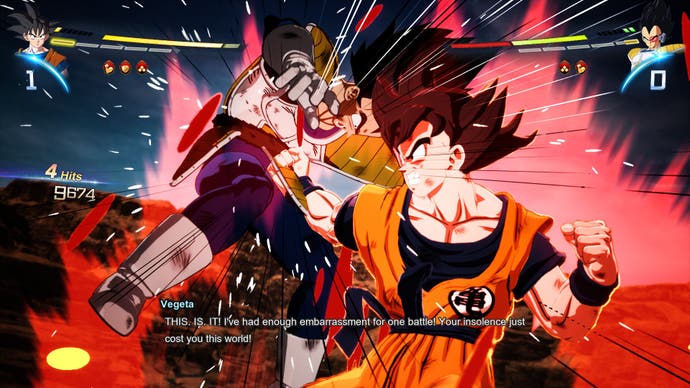
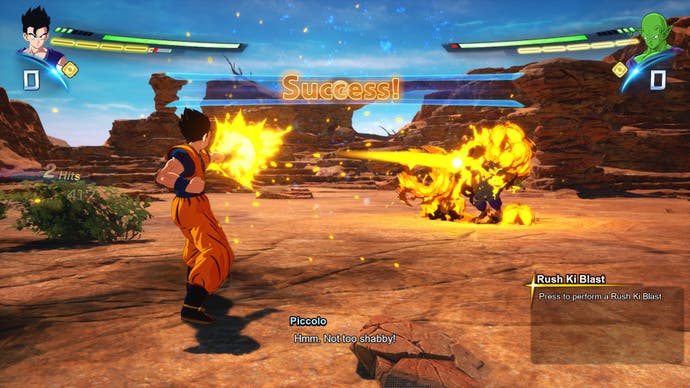
Throwing out ranged ki blasts or charged melee attacks that cover huge distances is a simple button press away, but doing so without caution leaves you open to a breadth of available counterattacks. Blocking, deflecting, parrying, and dodging are all extremely strong tools, because most attacks have such a big wind-up that the window for counterattacking feels extremely generous. It all results in an uncharacteristically strategic arena fighter. After a few hours of getting to grips with Sparking! Zero, I came away feeling pleasantly surprised by this. It’s simple to learn and even simpler to master, but I couldn’t just switch off during fights. Feeling your opponent out and fighting in a reactive manner is the aim here, unlike other games in the genre that usually devolve into aggressive button mashers.
Story mode, meanwhile, is divided into ‘character episodes’ in which you follow a character from Dragon Ball as they make their way through parts of the story. I’d say completing all of them took me around 15 to 20 hours. There’s extra stuff outside of this too, like little one-off bonus fights, but the character episodes are where the real fanservice is found – particular with Sparking! Zero’s ‘what if’ moments.
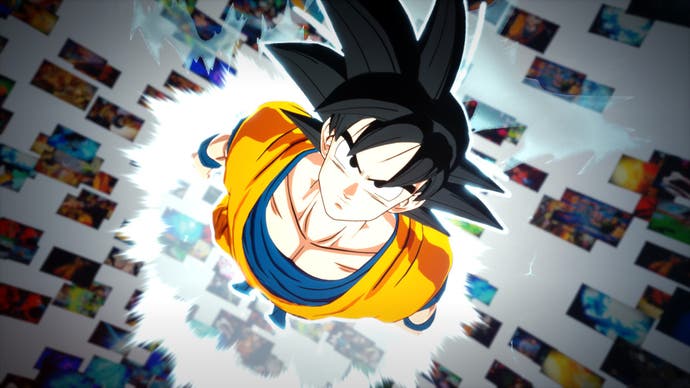
Every now and then, a fight will have branching paths, like a dialogue option you can pick in a cutscene, or a special condition in a fight (such as winning a fight quickly, or winning using a specific move). Completing a bonus objective here will trigger a non-canon, alternate-path story. Some of these earn you a little cutscene. Others are an entire saga in and of themselves. Spoiling a resulting story would ruin the fun, but here’s an example: ever wondered what would have happened if Goku beat Raditz instead of dying at the start of Dragon Ball Z? Well wonder no more, because Sparking! Zero gives you two ways to see how things could have played out differently.
The Dragon Ball fanboy in me needs a moment here. If you love the anime, you will think these branching path stories are some of the hypest, most fan-servicing stories ever devised. There’s clearly genuine Dragon Ball enthusiasm and knowledge informing the writing here. They explore the kind of ridiculous, stupidly awesome scenarios that I thought up as a kid, and I could not get enough of them. The best ones even include full cutscenes, because the folks that wrote them knew they’d cooked up something fierce.
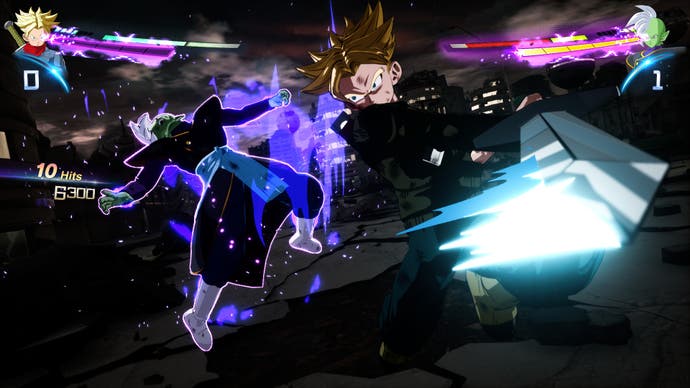
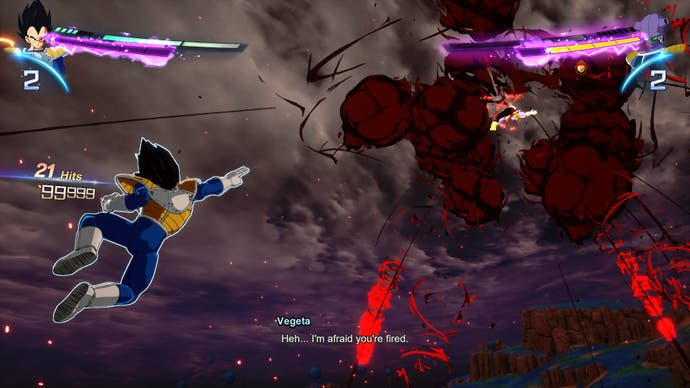
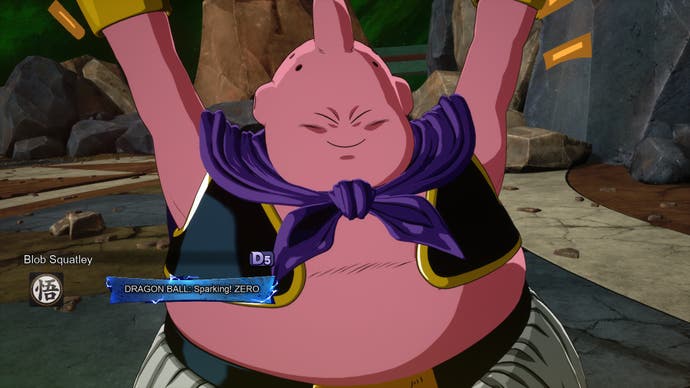
Ahem, anyway – back to being professional. Performance on PC was brilliant. Outside of some momentary texture pop-ins when matches began, I cannot fault it in any way. There wasn’t even a hint of frameloss in split-screen multiplayer with all of my graphical settings on max. I expected worse, because Sparking! Zero is a beautiful game. I might even be as bold as to say it’s one of the best-looking games I’ve played in some time, albeit not for the usual reasons. It’s the lighting effects in Sparking! Zero that sells the entire experience. Nothing comes close to beating how stunning a beam clash looks in this game. Watching the shadows disappear from every corner of a stage, as reality distorts and breaks around you, has yet to get old. Frankly, I doubt it ever will.
The online also felt solid. I never felt like my inputs were being eaten at any point, nor did I experience much in the way of lag. I got to play probably 50 or so games with unique opponents, which I tested using a wired and a wi-fi connection, and it always felt great – even when my opponent had a rubbish connection. Consider me surprised again in this respect, because rubbish netcode seems to be the norm for arena fighters and Sparking! Zero is the exception.
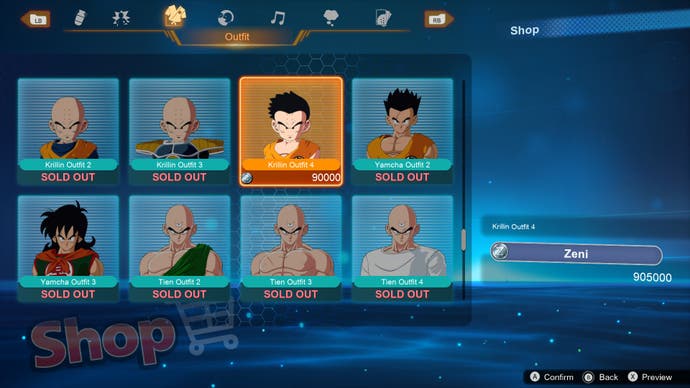

It’s not all positive however. Sparking! Zero has its foibles, most of which are small but one of which I consider quite big; the tutorial is awful. It’s just not comprehensive for a start (I know this because I figured out how to do a couple of things it didn’t cover entirely by accident in the training mode). It’s also just extremely unwieldy. Prompts in training are divided into separate sections, but there’s no option to automatically move on to the next section afterwards. You’ll spend more time navigating menus than you’ll actually spend learning (in fact, Sparking! Zero’s menus are generally cumbersome across the board, with muddled and inconsistent inputs). Also, for some bizarre reason, your opponent in the tutorial can die. This is tutorial 101 stuff. Thankfully, the training mode is at least a bit better: lots of programmable CPU actions and settings you can tinker with.
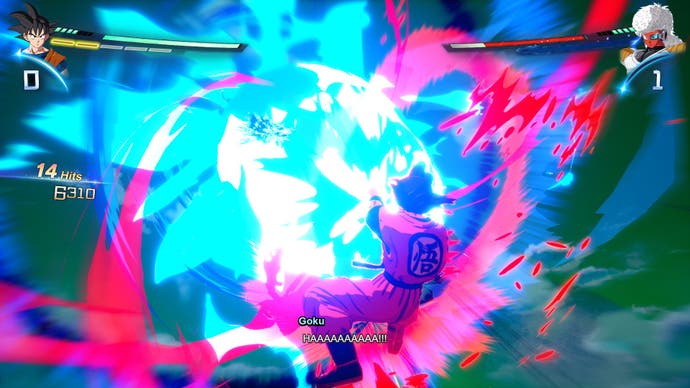
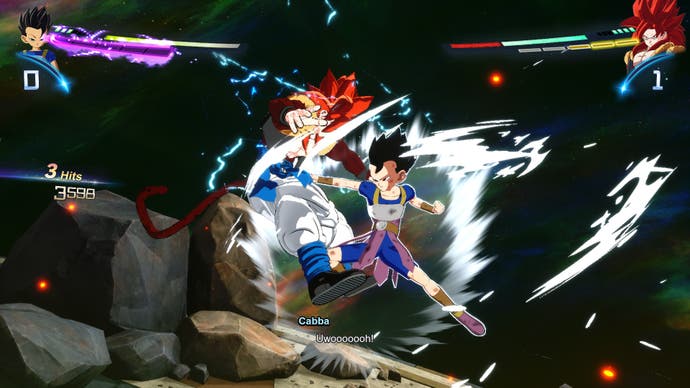
A few of Sparking! Zero’s 182 characters do also just feel like palette swaps as well. Trunks and Tapion, for instance, are genuine one-for-one copies: outside of their super attacks, their moves and animations are identical. I think I only spotted roughly 5 or 6 of these palette-swaps on the roster, but you also have to keep in mind that some of those characters are simply upgraded versions of each other – like for instance Cabba and Super Saiyan Cabba. In this sense, probably only half of the roster consists of wholly unique characters. Although this might sound like a big deal, I’ve relegated this to the “smaller issues” section because, well, there are 182 characters – expecting each to be truly unique would be unrealistic. And variations, copies and near-clones are ultimately all part of the Dragon Ball experience.
I don’t know if I like the fact that I’ve pigeon-holed myself into becoming an ‘arena-fighter guy’ in recent years, but it does afford me a rare opportunity here. I’ve played more than enough of them at this point that I can zero in on what separates a poor, quickly churned-out arena fighter from a competent one at a glance. The former will play it safe. They’ll feature a basic story mode, a wilfully unbalanced roster, and an art style that simply attempts to replicate the style of its anime. Sparking! Zero is the arena fighter antithesis in this regard. Story mode, with its luxurious cutscenes and generous branching moments of fanservice is so strong it’s arguably the main draw of the game; the roster is unbalanced outside of online play, but forcefully balanced within it (as online team battles give individual characters numerical ratings, upwards of 10 for the strongest ones, and don’t allow you to exceed a score of 15 total across your team of up to five characters); and honestly, the gameplay and cutscenes in this game actually blow much of Dragon Ball Super’s anime out of the water.
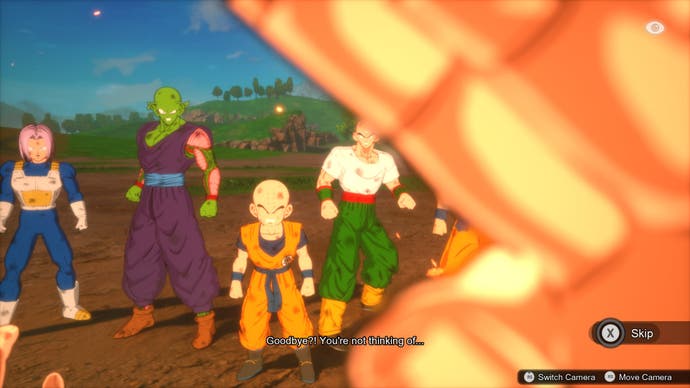
It’s fanservice wrapped up in a visually gorgeous package, yes, but you don’t need to love Dragon Ball to enjoy it (although it’ll certainly help). Unlike countless other examples I could name, Sparking! Zero is a polished, rich experience. Even if you’ve never seen an episode of Dragon Ball Z in your life, you can still jump into offline versus with a mate and have hours of fun pummelling away at each other while getting to grips with it. I feel comfortable recommending it to anyone based on that alone. But if you do love Dragon Ball, then I don’t think you could have asked for a great deal more. Now if you’ll excuse me, I have some childhood friends to message.
A copy of Dragon Ball: Sparking! Zero was provided for review by Bandai Namco.
